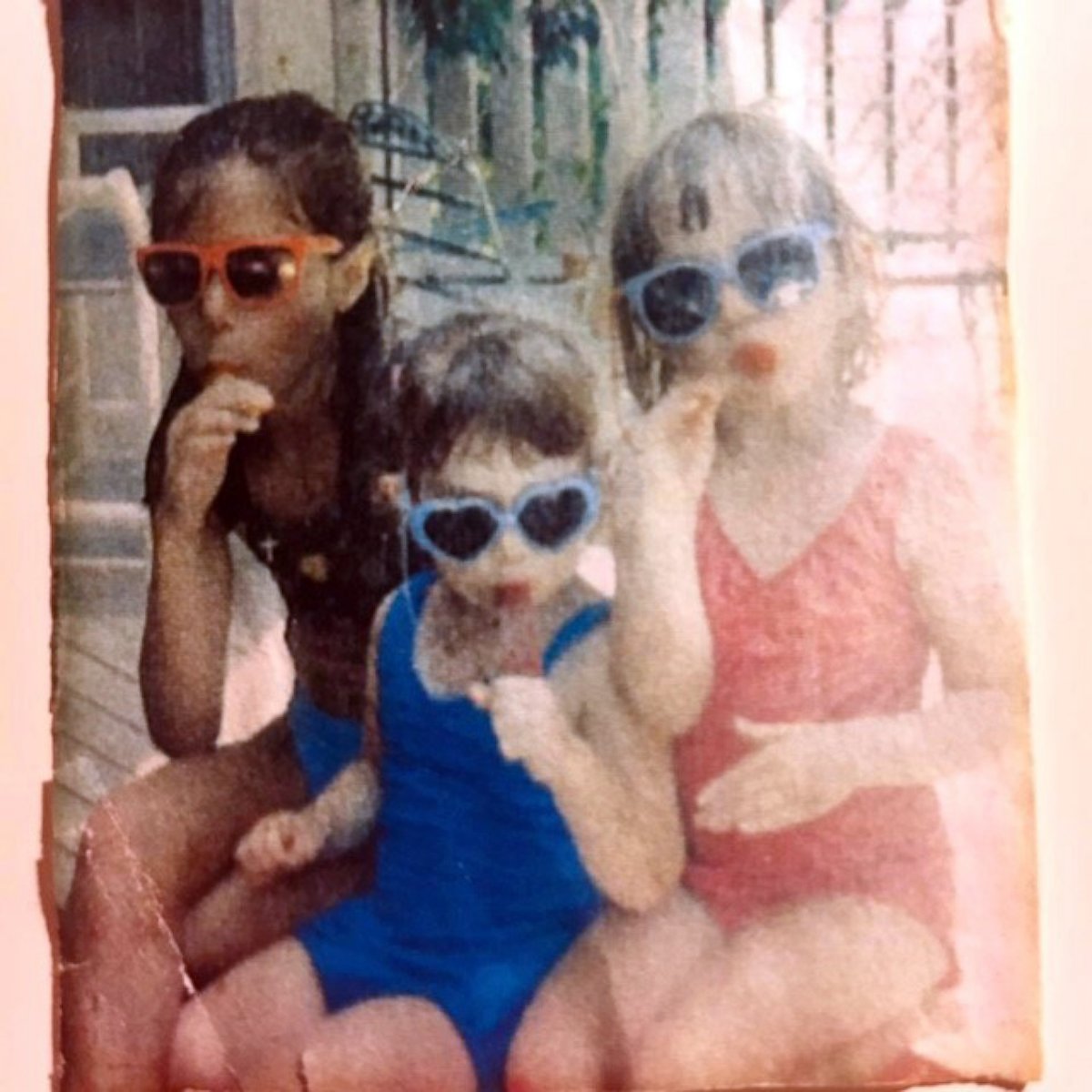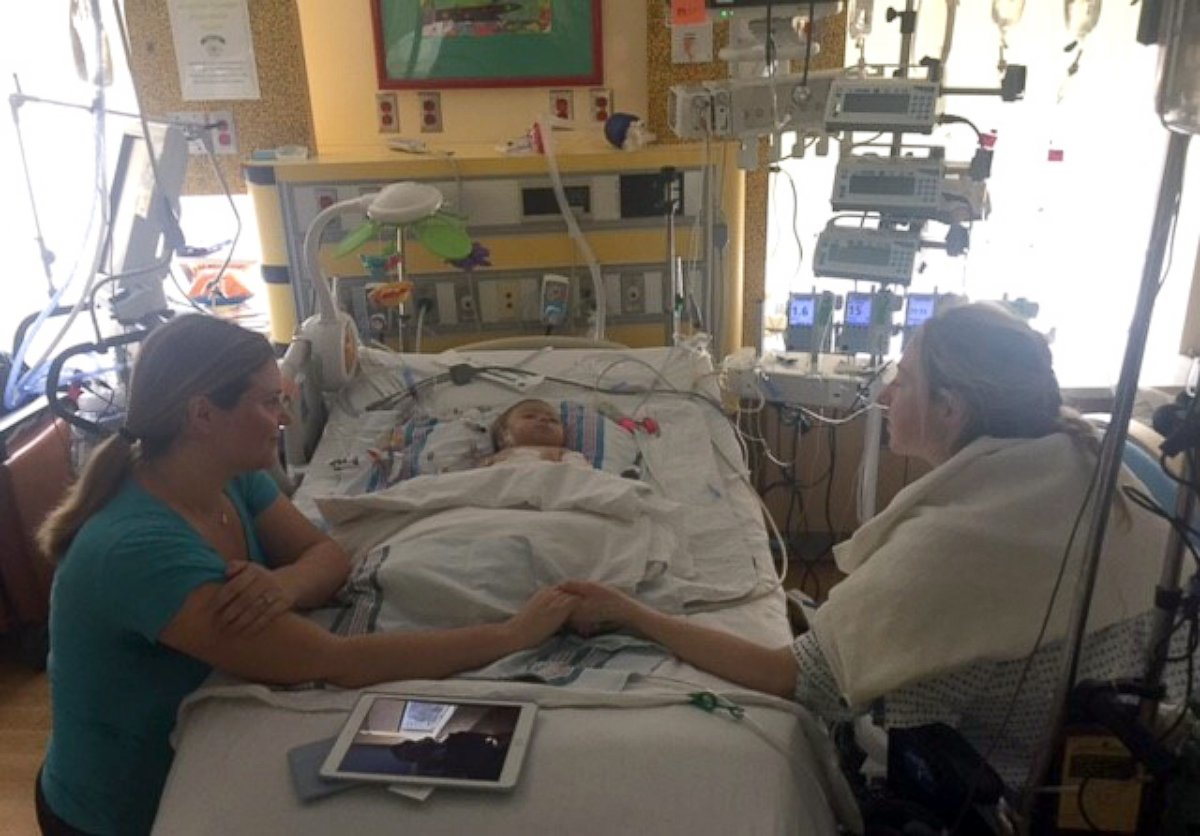Baby's godmother also his 'perfect' liver match
A Baby boy with two rare liver issues finds a donor close to home.
— -- Eight-month-old Finn has not one but two rare liver conditions and was in desperate need of a transplant.
His family found a match from someone who isn't a relative, but who has known the infant since he was born: his godmother.
Finn O'Sullivan has both biliary atresia and Alpha-1. The first is a rare disease of the liver and bile ducts that occurs in infants and the second a genetic disorder that can cause liver disease.
Dr. Adam Griesemer, one of Finn’s transplant surgeons and the assistant attending physician at NewYork-Presbyterian/Columbia University Medical Center, told ABC News that Finn's dual conditions is "pretty unusual" and that this is the first time he saw a child with this combination of issues.
Getting Finn a new liver was "exceedingly crucial," said Griesemer. "He would not have lived for long."
Sarah McKitterick, the child's liver donor and godmother, said he is "the strongest person she'd ever met."
His body's strength, in fact, has been returning since he received 15 percent of McKitterick's liver on April 18.
"The first time I saw him [after the transplant], I saw the whites of his eyes, something I had never seen before. He has been so ill, so yellow," McKitterick said. It was an emotional moment for her, she said.
Donating part of her liver to Finn was "an honor and a privilege," McKitterick said. And it was a role she was prepared for.
"I knew I was the one," she told ABC News. She told Kate Mullen, Finn's mom and McKitterick's lifelong friend as much as they waited to find out who among their family and friends might be a match for the baby.
"She was steadfast from the beginning that it was her," said Mullen, who lives with her family in New York City.
The two women grew up as next-door neighbors in New Hampshire. They, along with McKitterick's younger sister, Lindsey, "were the founding and only members of what they called the Crystal Club," she said. Mullen's mother was Sarah McKitterick's ballet teacher for 16 years. Later in life, Sarah McKitterick and Mullen were roommates.

Mullen said that she never wanted to influence McKitterick's decision to donate. "When she said yes, it brought me to my knees, literally."
"I sent her a message [before the transplant] and said 'If you want to stop here I will be forever grateful for the rest of my life.' and she just said, 'Stop it. I’m doing it.'”
Dr. Benjamin Samstein, McKitterick's surgeon and chief of liver transplantation and hepatobiliary surgery at NewYork-Presbyterian/Weill Cornell Medical Center and surgical director of the Living Donor Transplant Program at NewYork-Presbyterian told ABC News that McKitterick was a match for Finn for a variety of reasons.
"The fit had to be perfect," he said, which Sarah was. "She also had the ideal blood type, making her the best candidate."
McKitterick also made sure she was in optimal health. "She would Facetime Finn and show him all the healthy liver foods she was eating, like beets and green tea, to demonstrate she was taking care of 'his' liver."
Griesemer, Finn's transplant surgeon, said Sarah was very healthy. He also called her and all the living donors he said he is "blessed" to work with "phenomenal people."
Samstein said that while living donors give nearly 35 percent of kidneys used in transplants, they account for only about 5 percent of liver donations. One reason, he said, is a misconception that the surgery and recovery time for liver donation is worse than it necessarily is. McKitterick's surgery was done laparoscopically, making the length of the operation and recovery time "similar to that of a C-section," he said.
Nearly half of adults and about 5 to 10 percent of children in need of a liver transplant will die waiting for one, Samstein said. "Even one child is one too many," he said. Plus, as children wait for a liver transplant, they may experience a poor quality of life -- sick, confused, and robbed of the freedom of being a child.
"Liver transplant," Samstein said, "is a modern miracle. To see a child that faced near-certain death grow and then see their parents now worry about regular things, like whether they are spending too much time on the iPad, is enormously satisfying."

Mullen said she hopes that Finn's Facebook page will raise awareness about biliary atresia, Alpha-1 and the opportunity to serve as a living donor of a liver.
Finn's transplant, though still new, is expected to have a positive outcome, Samstein said. Mullen said her son is currently on 24 doses of medication per day; within a year, they are hopeful he'll be down to two. He could be discharged from the hospital as soon as this weekend.
As to McKitterick, Mullen said: "Our love for each other unconditional."
"I'm so humbled by what she did," Mullen said




